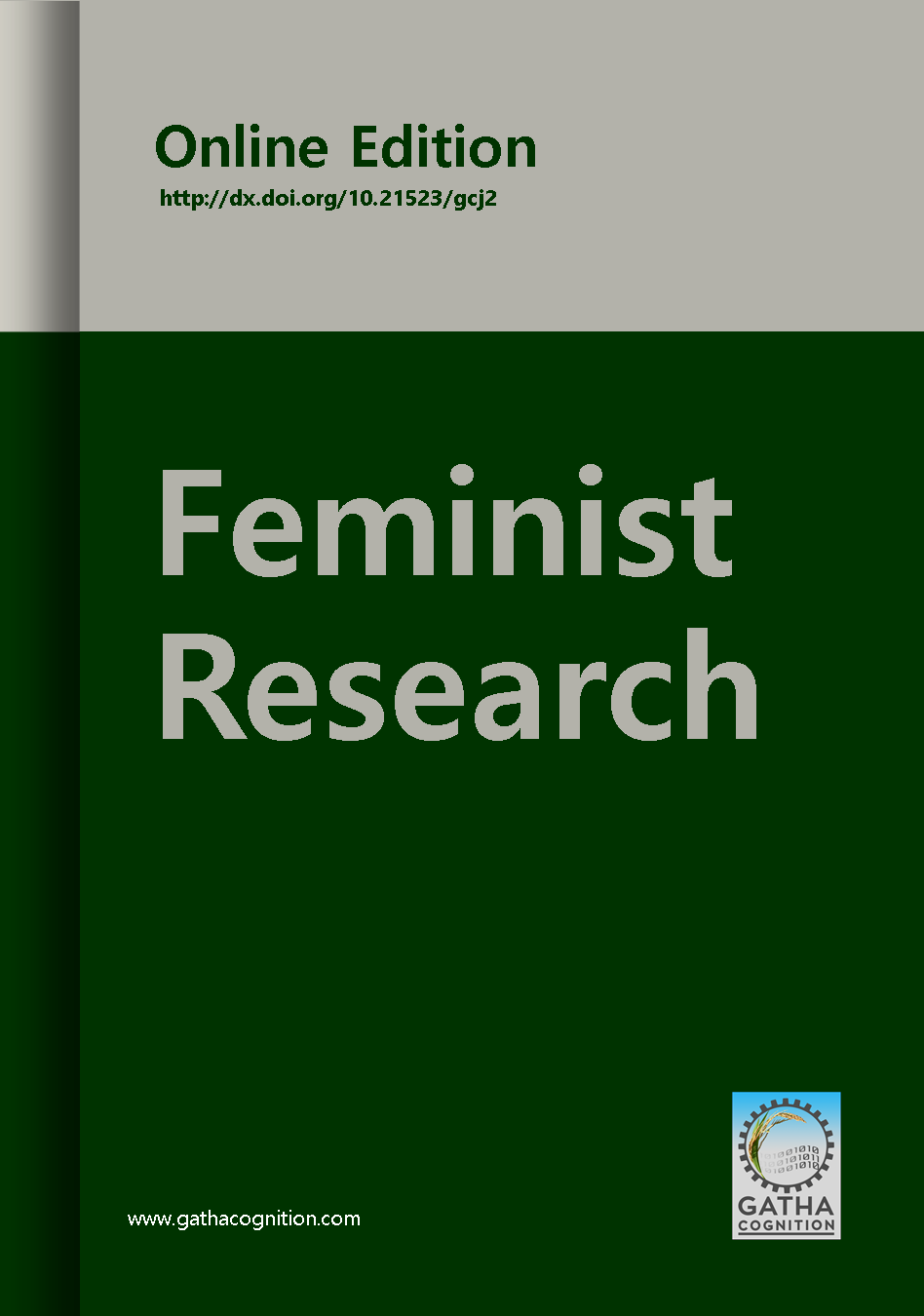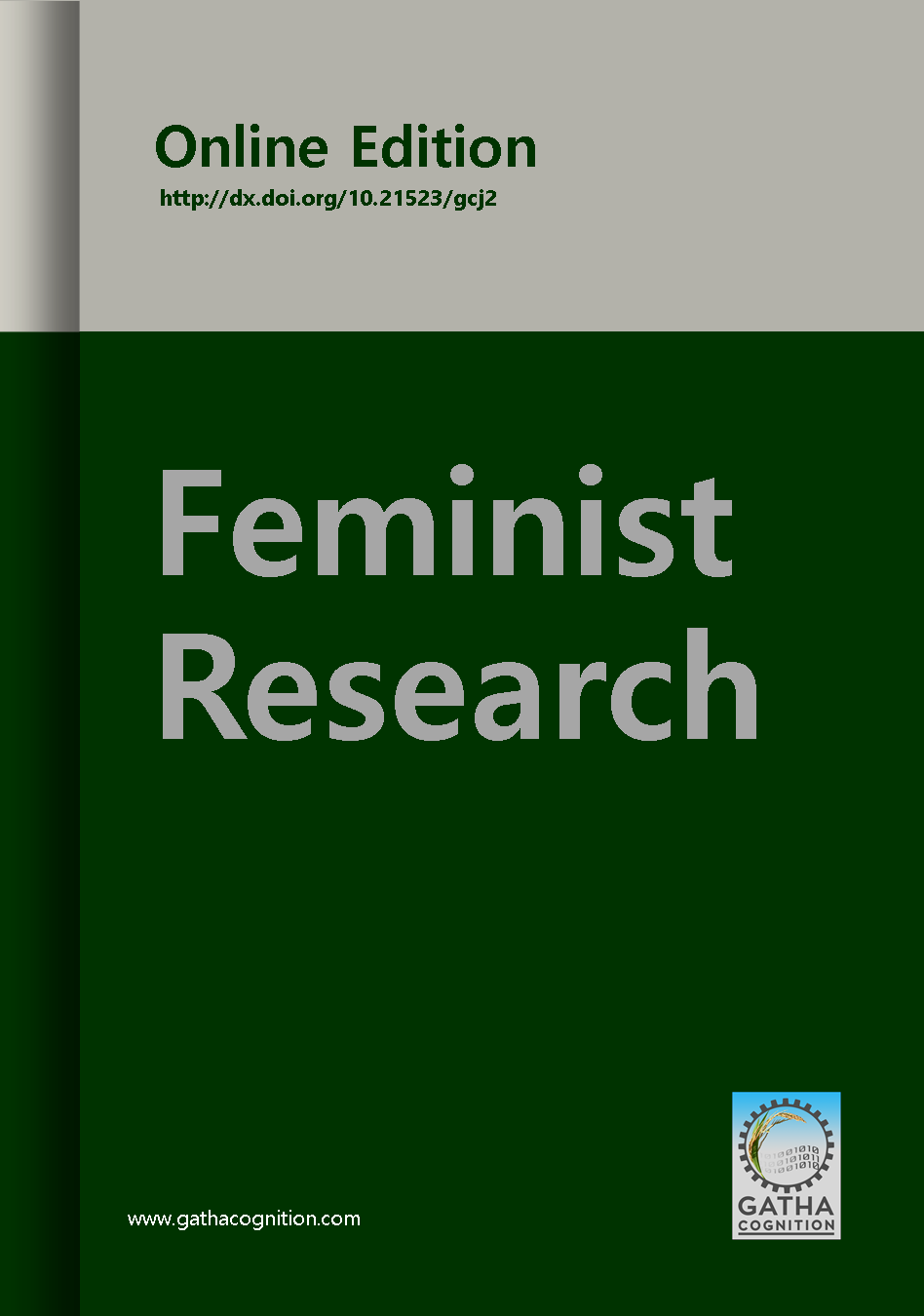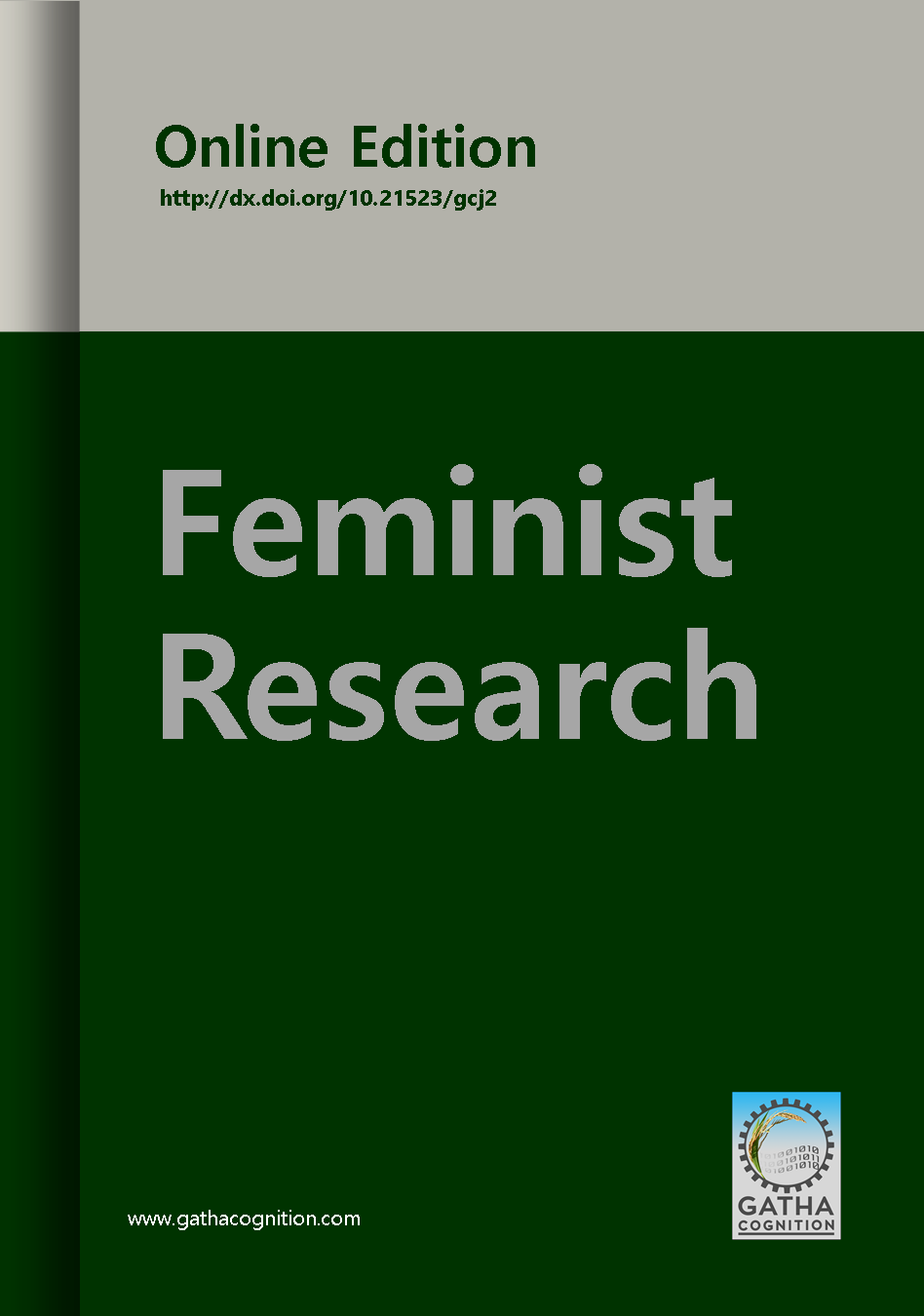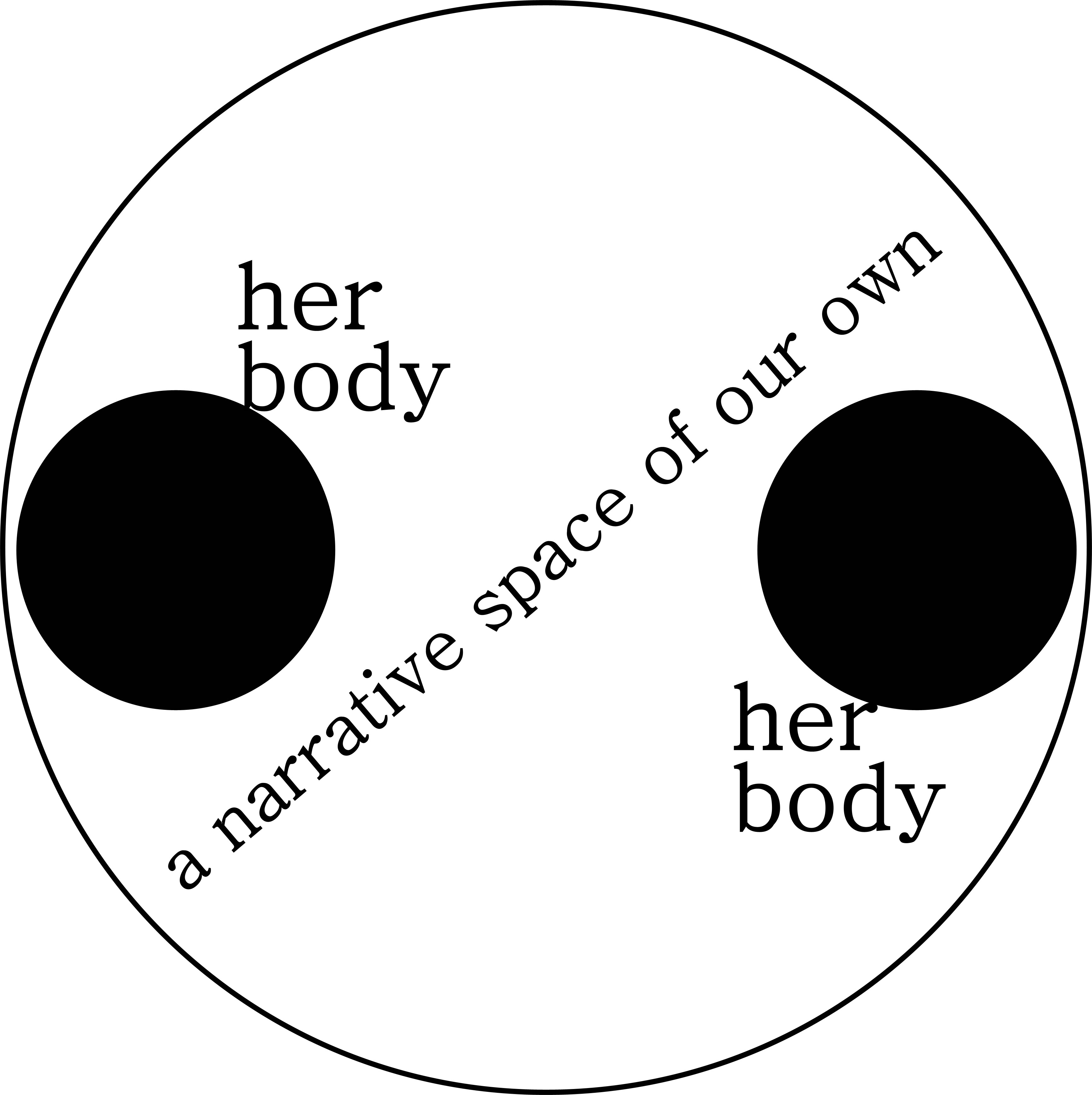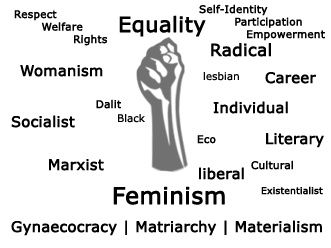1 . TECHNICAL PAPER
As a prolific writer Joseph Conrad’s career flourished at the intersection of the late Victorian and the early modern cultural phases. Heart of Darkness is Conrad’s most complex novella offering a brilliant fictional account of the savage extortion unleashed by imperialism in the guise of progress. The novel presents an account of a journey through the Congo, deep into the heart of Africa and into human nature. It is a story of an idealistic journalist named Kurtz, who has the power to corrupt the others and himself through his eloquence. He forgets his mission and becomes a cruel white lord subjugating the natives and exploiting the rich resources through smuggling elephant tusks. In the end he totally ignores his earlier mission and falls critically ill and dies on his way back to Europe.
In Heart of Darkness the number of women characters is very limited. Kurtz’s Intended, his aunt, two black wool knitting women, and Kurtz’s African beloved etc. are worth to mention here. In this novella, women are forced to confront their infinitely minute and equally transitory role. The facts Conrad has used for describing female’s individual identity or consciousness separate them from the rest of the environment and their fate. What makes them tragic as they are not the victims of nature, but there is a conscious effort to neglect their own identity.
In most of Conrad’s novels man is combating himself rather than the external elements or man against man. As it is believed by Eloise Knapp Hay in The Political Novels of Joseph Conrad that, “Nearly all his principal characters fall into situations where their personal action or thought is challenged by public forces with which they are incompatible and with which they must be reconciled” (Hay, 1963:13). Female characters in Heart of Darkness are not exceptional to this fact. In most of the situation, their views/ideology is challenged by external society, especially men, and they are forced to reconcile it.
Among the all female characters Kurtz’ Intended has an important role. Marlow’ encounter with Kurtz’s Intended surprises him. It shocks him most about her is not that she is deceived about what Kurtz really is, but that her faith in him should be so disinterested. Marlow noticed her sincerity. He cannot avoid her. Her faith on Kurtz earns her the right to be told the truth. Marlow’s
truth might have destroyed her faith on true love. It is argued by Jacques Berthout in The Major Phase that, their relationship is like “a knot that cannot be untied, but only cut” (Berthoud, 1978:62). Marlow does it by telling her lie.
Here, Marlow’s lie can be defined in various ways. It can be defined that Marlow told her lie just to rescue her faith on true love and obviously on Kurtz, who is representative of male dominance over natives for his own personal interest. It is quite contradictory that the whole narrative of the story is concerned about the lie used for having economic and political control and its consequences on Kurtz. Further, Marlow relies on the same lie to retain the faith on true love. Marlow argued that he has deceived her simply out of concern for himself and not for her. It is an extreme example of male protectiveness. She has been depicted as very submissive and believes on others easily. She even do not doubt on Marlow’s story that the last word Kurtz pronounced was her name. It pleased her very much. Marlow describes her that, “she seemed ready to listen without mental reservation, without suspicion, without a thought for herself” (Conrad, 1992: 89). She has faith on Kurtz and Marlow. But as a reader, we know the real story. It makes her a pitiable character and we feel sympathy for her.
The way she has been described in the story suggests that she does not have her own identity and also voice. Anybody can deceive her and take advantage of her innocence and submissive nature as being a woman. She has been depicted as blind in her love for Kurtz. She cannot think about external world beyond her own love. She feels proud that she understands Kurtz better than anyone on earth. The Intended’s utterance after hearing Marlow’s lie shows how Marlow has elevated the soul of the Intended, who says:
I want you – you who have heard his last words – to know I have been worthy of him…. It is not pride…. Yes! I am proud to know I understood him better than anyone on earth – he told me so himself. And since his mother died I have had no one – to – to -. (Conrad, 1992: 91, 92)
She talks about Kurtz as thirsty man drink. She simply believes on Marlow’s words and becomes ready to sacrifice her life for the person who even did not think about her. She waits for Kurtz but the news of his death robbed her hope of happiness in future. She feels proud of that sorrow and thinks that Kurtz deserve it. She does not feel regret of her condition. As she says, “I have been very happy- very fortunate- very proud”. She went on. “Too fortunate. Too happy for a little while. And now I am unhappy for – for life” (Conrad, 1992: 92, 93). Even her engagement with Kurtz had been disapproved by her people. He was not rich enough or something. But still she loves him whole heartedly. She accepts the situation and decides to live in her illusion.
It can be said that Marlow’s lie saved the Intended from a miserable life. It can also be vouched that had he told the Intended the truth, she might not have believed him, and he did not want to shatter the image of Kurtz as well as that of European civilization which she formed in her mind, and from which it was impossible to displace her. She is in her illusion and she is quite happy with that.
As Marlow describes her that,
She comes forward, all in black, with a pale head, floating towards me in the dusk. She was in mourning. It was more than a year since his death, more than a year since the news came; she seemed as though she would remember and mourn forever… she had a mature capacity for fidelity, for belief, for suffering. The room seemed to have grown darker, as if all the sad light of the cloudy evening had taken refuge on her forehead. This fair hair, this pale visage, this pale brow, seemed surrounded by an ashy halo from which the dark eyes looked out at me. Their glance was guileless, profound, confident, and trustful. She carried her sorrowful head as though she were proud of that sorrow” (Conrad, 1992: 90).
There are very few happy incidents occurred in her life. Now, she becomes ready to mourn on Kurtz’s death for life. The nature of Intended is opposite to Kurtz. Her character strangely points out the difference between moral and demoralized world. It focuses on the plight of women and also pinpoints the gender difference in so- called civilized world. The character of Intended along with the Accountant is an extreme example of goodness and moral idealism in the demoralized world. Marlow’s lie itself is an act of darkness. The girl’s belief in the essential virtue of mankind and her faith in her betrothed is an illusion. But it is not unreal. It is a matter of truly unselfish conviction. It keeps alive the light of moral ideology even in the darkness of actuality.
As we consider the story at all women on the realistic level we must try to understand what is denied to them. And a proper understanding of it will shed significant light on women’s life and men’s reactions towards them. Their unspeakable voice and concern for sacrifice project them as sacrificial victim.
In conclusion we can say that, there can be no quarrel with the generally accepted notion of Kurtz’s bestiality involved in the exploitation of the natives. But no critic, to my knowledge, has attempted to describe the precise nature of the relationship between the men and women in Heart of Darkness. It is not only a story of Kurtz, who simply enslaved the natives and practices upon them unspeakable acts of lust and brutality. It also focuses on the monstrous behaviour of men with women. It shows how women are enslaved by men for the fulfillment of their sexual desire or having a control over them just as on the natives. It accounts for the fact that in Heart of Darkness Conrad is silent about women’s unspeakable voice.





